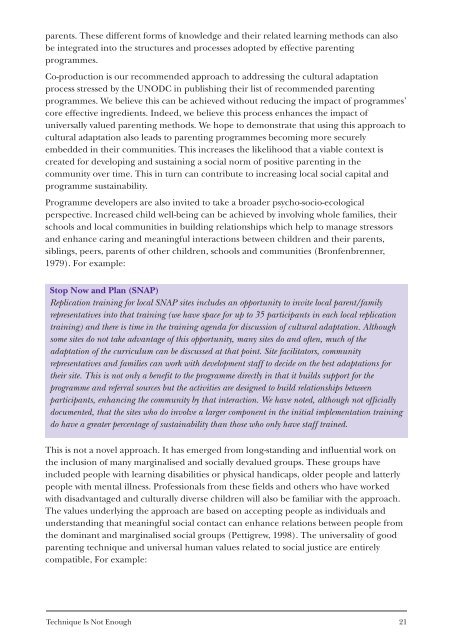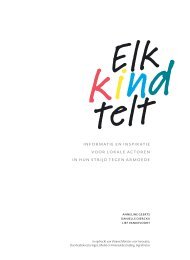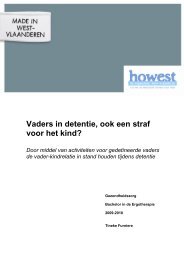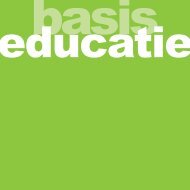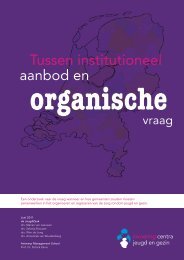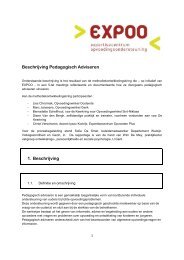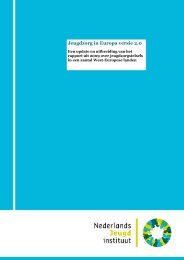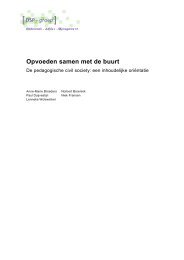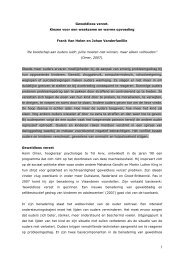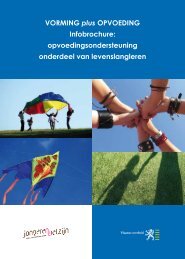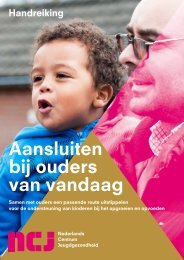Technique Is Not Enough (TINE) - British Psychological Society
Technique Is Not Enough (TINE) - British Psychological Society
Technique Is Not Enough (TINE) - British Psychological Society
- No tags were found...
Create successful ePaper yourself
Turn your PDF publications into a flip-book with our unique Google optimized e-Paper software.
parents. These different forms of knowledge and their related learning methods can alsobe integrated into the structures and processes adopted by effective parentingprogrammes.Co-production is our recommended approach to addressing the cultural adaptationprocess stressed by the UNODC in publishing their list of recommended parentingprogrammes. We believe this can be achieved without reducing the impact of programmes’core effective ingredients. Indeed, we believe this process enhances the impact ofuniversally valued parenting methods. We hope to demonstrate that using this approach tocultural adaptation also leads to parenting programmes becoming more securelyembedded in their communities. This increases the likelihood that a viable context iscreated for developing and sustaining a social norm of positive parenting in thecommunity over time. This in turn can contribute to increasing local social capital andprogramme sustainability.Programme developers are also invited to take a broader psycho-socio-ecologicalperspective. Increased child well-being can be achieved by involving whole families, theirschools and local communities in building relationships which help to manage stressorsand enhance caring and meaningful interactions between children and their parents,siblings, peers, parents of other children, schools and communities (Bronfenbrenner,1979). For example:Stop Now and Plan (SNAP)Replication training for local SNAP sites includes an opportunity to invite local parent/familyrepresentatives into that training (we have space for up to 35 participants in each local replicationtraining) and there is time in the training agenda for discussion of cultural adaptation. Althoughsome sites do not take advantage of this opportunity, many sites do and often, much of theadaptation of the curriculum can be discussed at that point. Site facilitators, communityrepresentatives and families can work with development staff to decide on the best adaptations fortheir site. This is not only a benefit to the programme directly in that it builds support for theprogramme and referral sources but the activities are designed to build relationships betweenparticipants, enhancing the community by that interaction. We have noted, although not officiallydocumented, that the sites who do involve a larger component in the initial implementation trainingdo have a greater percentage of sustainability than those who only have staff trained.This is not a novel approach. It has emerged from long-standing and influential work onthe inclusion of many marginalised and socially devalued groups. These groups haveincluded people with learning disabilities or physical handicaps, older people and latterlypeople with mental illness. Professionals from these fields and others who have workedwith disadvantaged and culturally diverse children will also be familiar with the approach.The values underlying the approach are based on accepting people as individuals andunderstanding that meaningful social contact can enhance relations between people fromthe dominant and marginalised social groups (Pettigrew, 1998). The universality of goodparenting technique and universal human values related to social justice are entirelycompatible, For example:<strong>Technique</strong> <strong>Is</strong> <strong>Not</strong> <strong>Enough</strong> 21


